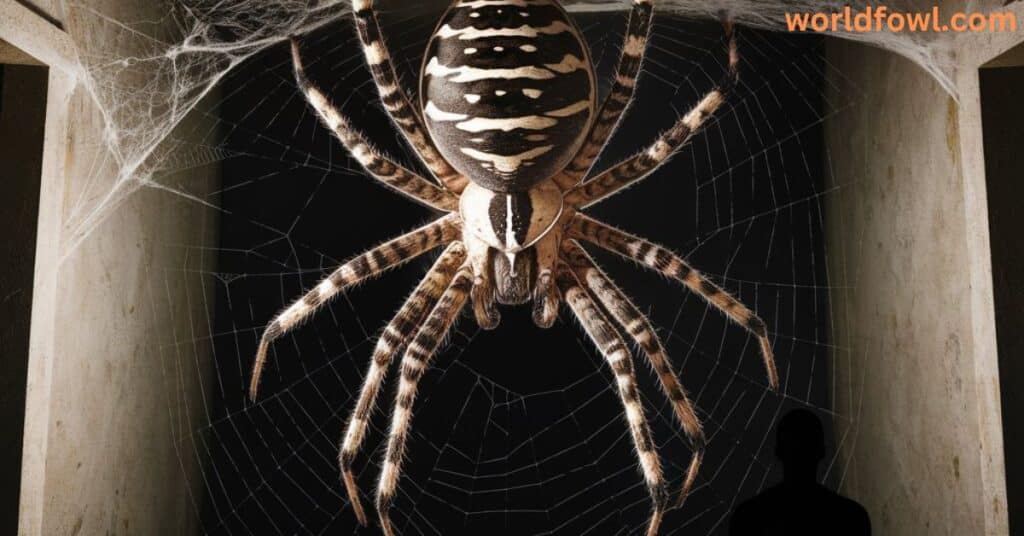Spiders are one of the most diverse and misunderstood groups of animals on the planet. With over 50,000 identified species, they are crucial players in ecosystems worldwide. Despite their ecological significance, spiders are often feared due to their perceived danger to humans. The central question many people ask is: “Do spiders attack humans?” The simple answer is no. Spiders are not naturally aggressive toward humans, and their interactions with us are almost always accidental or defensive. This comprehensive guide will explore spider behavior, the truth about their bites, and their ecological roles. By the end, you’ll have a newfound appreciation for these fascinating creatures.
The Anatomy and Behavior of Spiders
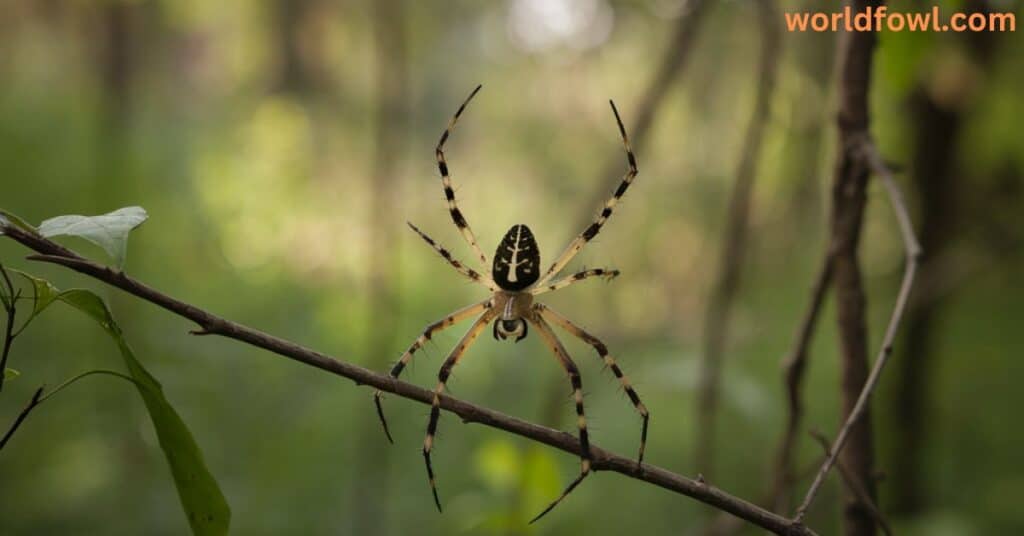
Spider Anatomy: Built for Hunting, Not Attacking
Spiders are arachnids, not insects, and have several unique physical features that make them highly efficient predators:
| Anatomical Feature | Purpose |
| Eight Legs | Provides exceptional mobility and balance for hunting and climbing. |
| Chelicerae (Fangs) | Used to inject venom into prey or for self-defense. |
| Spinnerets | Produces silk for webs, egg sacs, and other survival needs. |
| Venom Glands | Paralyzes or kills prey; rarely harmful to humans. |
| Multiple Eyes | Enhances vision for detecting movement, especially in hunting species. |
Spiders are evolutionarily adapted to survive in diverse environments, from deserts to rainforests. Their primary focus is hunting insects and small animals, not interacting with humans.
See Also : Do Quolls Attack Humans? Silent Predators
Understanding Spider Behavior: Why They Don’t Attack Humans
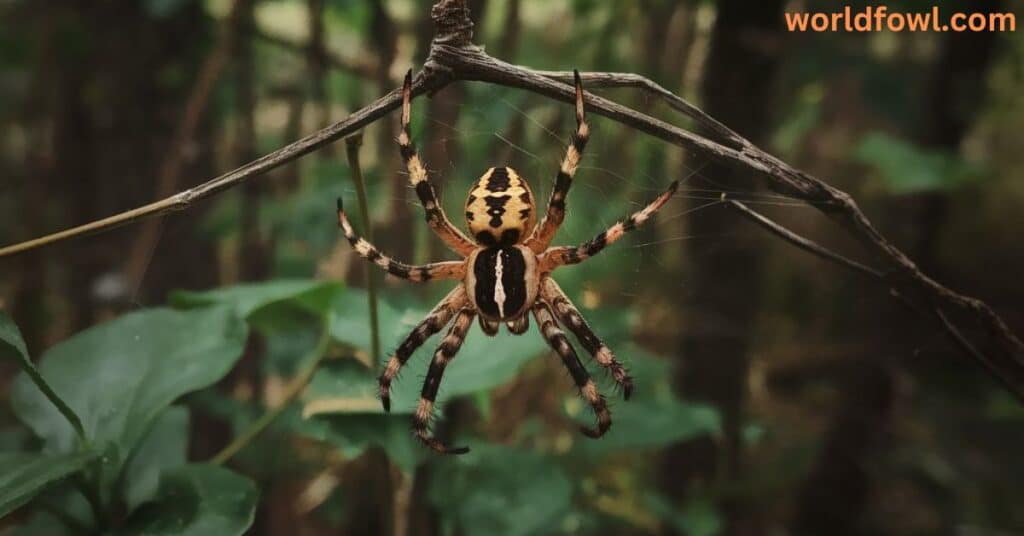
Spiders are naturally shy and reclusive creatures. Their behavior is dictated by survival instincts, not aggression.
Key Behavioral Traits
- Solitary Nature
- Most spiders live alone and avoid contact with others, including humans.
- Exceptions include communal species like social spiders, which build shared webs but still avoid humans.
- Nocturnal Activity
- Spiders are most active at night, reducing the likelihood of encounters with humans.
- Territorial but Defensive
- Spiders defend their territory from predators or threats but rarely initiate aggression.
- Avoidance of Larger Creatures
- Spiders perceive humans as predators and will flee or hide rather than confront us.
Defensive vs. Aggressive Behavior
Spiders may exhibit defensive behaviors when threatened, such as:
- Biting: A last-resort response when escape is impossible.
- Threat Postures: Raising front legs or fangs to appear larger.
- Web Vibrations: Some spiders shake their webs to deter predators.
See Also : Do Armadillos Attack Humans? The Startling Reality!
Spider Bites: Separating Fact from Fiction
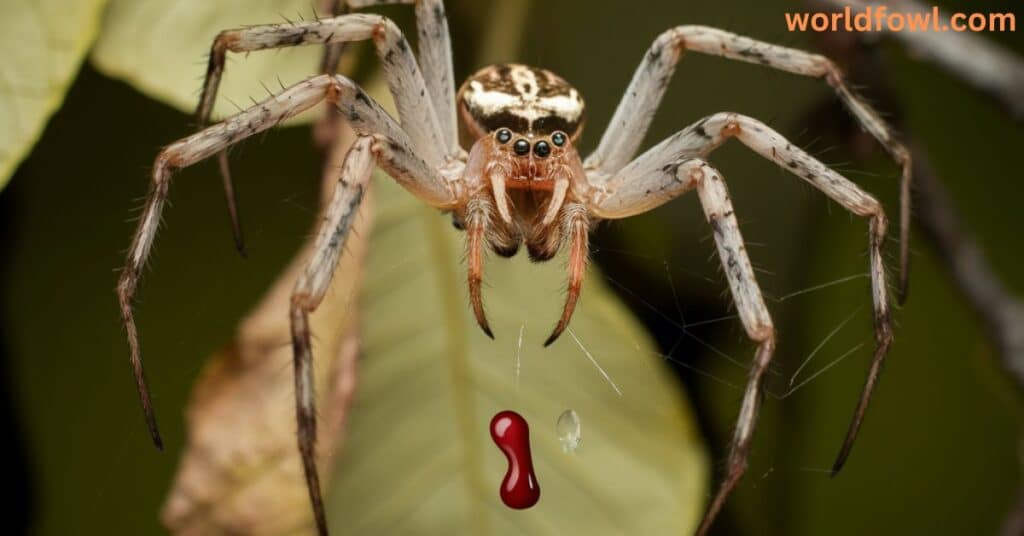
Why Do Spiders Bite?
Spider bites are exceedingly rare and almost always occur under specific circumstances:
- Accidental Encounters
- Bites often happen when a spider is trapped in clothing, shoes, or bedding.
- Defensive Reflex
- A spider may bite when handled roughly or cornered.
- Mistaken Identity
- In rare cases, a spider may bite when mistaking human skin for prey, though this is uncommon.
Symptoms of Spider Bites
Most spider bites cause mild, localized symptoms, such as redness or itching. Severe reactions are rare and usually occur with bites from venomous species.
| Symptom | Common Cause |
| Redness and Swelling | Most non-venomous spider bites. |
| Itching or Mild Pain | Common with bites from garden spiders or house spiders. |
| Severe Pain and Cramps | Associated with venomous species like black widows. |
| Tissue Damage (Necrosis) | Rarely occurs with bites from brown recluse spiders. |
Medically Significant Spider Bites
| Spider | Region | Effects | Fatalities |
| Black Widow | Worldwide | Neurotoxic venom causing muscle pain, spasms. | Extremely rare, due to antivenom availability. |
| Brown Recluse | USA | Tissue necrosis, but only in severe cases. | Rare, often with underlying health issues. |
| Sydney Funnel-Web Spider | Australia | Highly toxic venom causing rapid systemic effects. | Potentially fatal; antivenom widely available. |
Myths and Misconceptions: Do Spiders Chase Humans?
Debunking the “Aggressive Spider” Myth
One of the most enduring myths is that spiders chase humans. This misconception likely arises from misinterpreted behaviors:
- Defensive Displays: A spider raising its legs or fangs is a defensive, not aggressive, behavior.
- Rapid Movement: Spiders may appear to “chase” when fleeing toward shelter.
Case Study: The Huntsman Spider
The huntsman spider is often feared for its size and speed. However, it is a harmless species that actively avoids humans. Its rapid movements are usually an attempt to escape predators, not to attack.
See Also : Do Anteaters Attack Humans? A Closer Look!
The Role of Spider Venom

What Is Spider Venom Made Of?
Spider venom is a complex mixture of proteins, peptides, and enzymes. Its primary functions are:
- Immobilizing Prey
- Pre-digesting Food
- Deterring Predators
Venom Potency
Out of the thousands of spider species, only about 30 are considered medically significant to humans. Most spiders have venom that is harmless to humans due to low potency or small quantities.
Spiders in Ecosystems: Their Critical Role
Natural Pest Control
Spiders consume vast numbers of insects, helping to control populations of:
- Mosquitoes
- Flies
- Moths
- Agricultural pests
For example, a single spider can eat over 2,000 insects in a year, reducing the need for chemical pesticides.
Biodiversity Indicators
The presence of spiders often signals a healthy ecosystem. They serve as prey for:
- Birds
- Frogs
- Small mammals
Contributions to Medicine and Technology
Spider silk and venom have inspired innovations in:
- Biomedical Research: Spider venom components are being studied for pain relief and anti-cancer properties.
- Material Science: Spider silk is used as a model for creating lightweight, durable materials.
See Also : Do Bats Attack Humans? The Hidden Dangers!
Preventing Spider Encounters
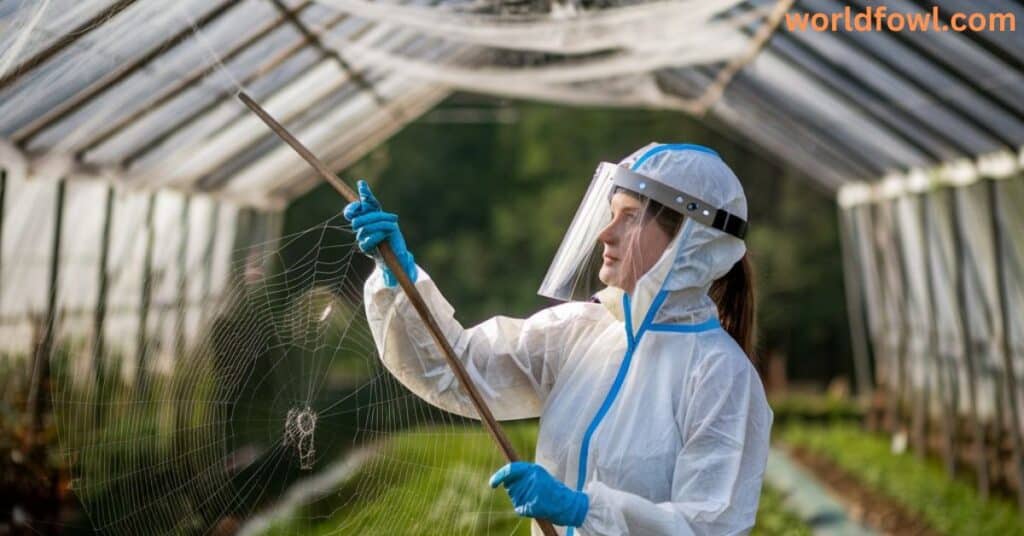
Spider-Proofing Your Home
- Seal Entry Points
- Close gaps in windows, doors, and walls.
- Remove Clutter
- Spiders thrive in dark, undisturbed areas like basements and attics.
- Reduce Outdoor Attractants
- Minimize outdoor lighting that attracts insects, a primary food source for spiders.
Personal Safety Tips
- Inspect Clothing and Shoes: Shake out items before use.
- Use Gloves: When gardening or handling debris, wear gloves to avoid accidental bites.
- Avoid Bare Feet: In spider-prone areas, always wear footwear.
Overcoming Arachnophobia
Why Are Humans Afraid of Spiders?
Arachnophobia, or the fear of spiders, may stem from:
- Evolutionary Survival: Fear of venomous creatures helped early humans avoid danger.
- Cultural Influence: Negative portrayals of spiders in media and folklore.
Coping Strategies
- Education: Learning about spiders reduces fear through understanding.
- Gradual Exposure: Controlled encounters with spiders can desensitize fears.
- Mindfulness Techniques: Deep breathing and visualization exercises help manage anxiety.
Do Spiders Attack Humans? The Final Verdict
The question “Do spiders attack humans?” reveals more about human fear than spider behavior. Spiders are non-aggressive creatures that play a crucial role in maintaining ecological balance. Their bites are defensive, not predatory, and occur only in rare, specific circumstances.
By understanding their behavior, respecting their habitats, and dispelling myths, we can coexist peacefully with these fascinating arachnids. So, the next time you see a spider, remember: it’s likely more afraid of you than you are of it.
FAQs
Are spider bites dangerous?
Most spider bites are harmless, causing only minor irritation. Only a small number of species have venom potent enough to harm humans.
How can I safely remove a spider from my home?
Use a glass and a piece of paper to capture the spider gently, then release it outdoors.
Why do spiders come indoors?
Spiders may enter homes in search of food (insects) or shelter, especially during colder months.
What’s the best way to prevent spider bites?
Inspect clothing, bedding, and shoes for spiders, and wear gloves when working in spider-prone areas.
Do spiders benefit the environment?
Yes, spiders control pest populations, contribute to biodiversity, and serve as prey for other species.
Let’s embrace spiders for their ecological contributions rather than fear them. They’re nature’s silent hunters, working tirelessly to maintain balance in the web of life.
Conclusion: Do Spiders Attack Humans?
Spiders are fascinating, complex creatures that play a vital role in ecosystems. While they may bite in self-defense, they do not attack humans intentionally. By understanding their behavior and ecological importance, we can replace fear with appreciation for these incredible arachnids.
The next time you see a spider, remember: it’s not your enemy—it’s nature’s pest control expert, working quietly to maintain balance in the web of life.

Henry James is a seasoned blogger and a passionate storyteller on “World Fowl.” With years of experience crafting engaging content, he brings a unique blend of expertise and creativity to his writing. Henry specializes in exploring diverse topics with depth and clarity, captivating readers worldwide.

